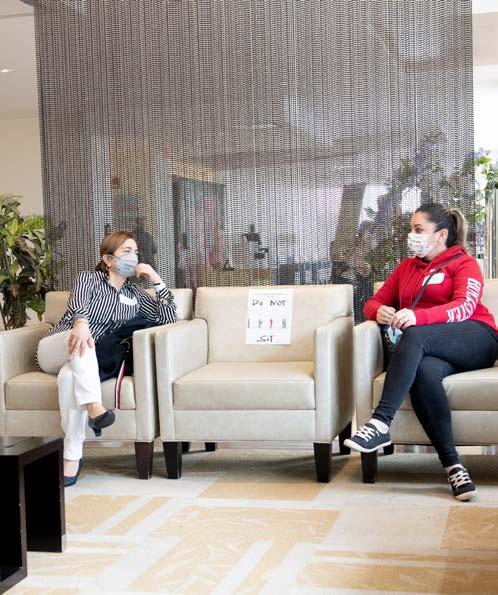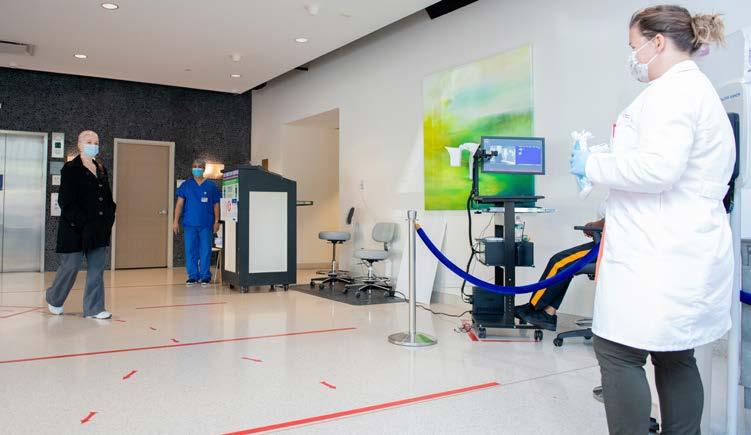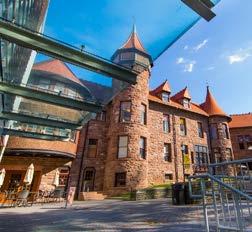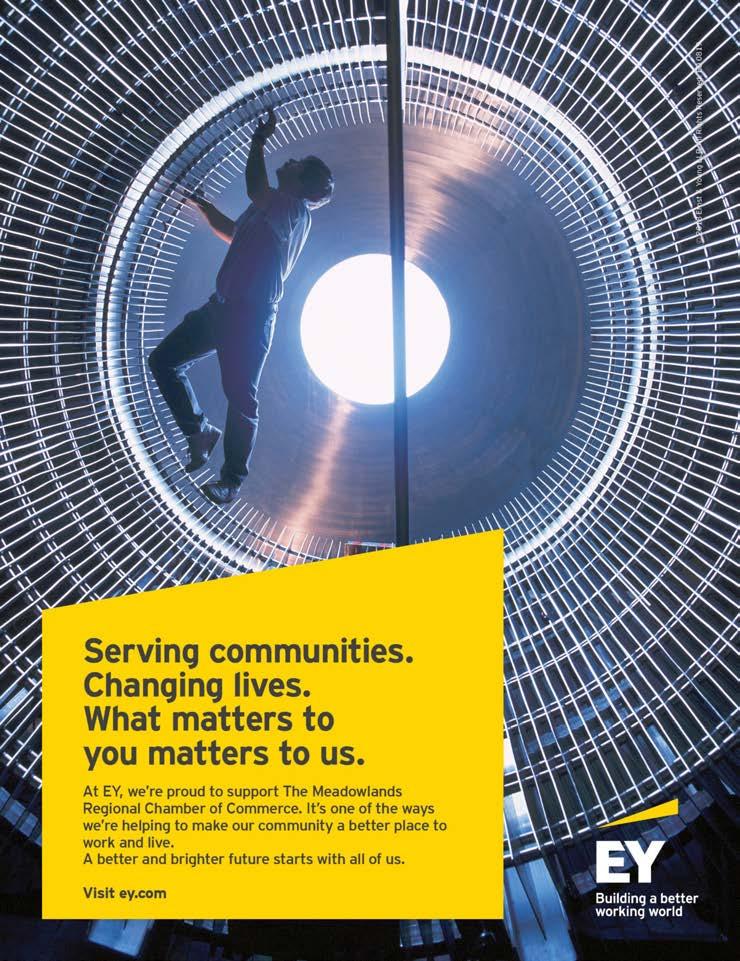
4 minute read
The Internet of Things (IoT): What is it and why should you care?
WE PUT SAFETY FIRST,
WITHOUT PUTTING PATIENTS SECOND.
Advertisement
Thanks to the hard work of our health care heroes and your efforts to flatten the curve, we are ready as ever to care for you. We’ve implemented many new protocols with safety at the forefront: J Separate areas for non-COVID-19 patients. J Temperature checks for all patients, visitors, team members and physicians upon entrance. J Rigorous cleaning and sanitization of our facilities. J Third-party environmental analysis to detect any evidence of the virus. J Testing all patients who stay at our hospitals. J Comprehensive testing program for our dedicated team members and physicians. J Enforcement of social distancing. J Telehealth visit availability.
Visit HackensackMeridianHealth.org/GetCareNow to learn more.
COVID-19 patients, including in the Emergency Department and critical care settings.
In addition to establishing testing protocols and separate treatment areas for non-COVID 19 patients, Hackensack Meridian has implemented a variety of other protective measures designed to safeguard all patients, visitors, team members and physicians — particularly those who are immunocompromised or who have conditions that put them at a higher risk for COVID-19 complications.
Enhanced safety measures include: • Specially designated entrances at hospitals for certain procedures and services. • Monitoring the temperature of all patients, visitors, team members and physicians who enter Hackensack Meridian facilities, requiring masks for everyone and testing all patients staying at hospitals. • Rigorously cleaning and sanitizing all Hackensack Meridian facilities, including the use of ultraviolet (UV) light cleaning and fogging. Hackensack Meridian has engaged a nationally recognized, third-party organization to oversee these significant efforts, including the testing of air, water and surfaces to make sure they’re safe for patients and team members. • Providing masks to patients, visitors, team members and physicians and requiring them to wear the masks when at Hackensack Meridian facilities. • Ensuring our team members and physicians have the appropriate personal protective equipment. • Practicing social distancing throughout Hackensack Meridian facilities and wherever possible. • Restricting visitation at all Hackensack Meridian hospitals and nursing and rehabilitation facilities, consistent with directives from the state of New Jersey.
Thanks to these effective protocols, Barbara Provost, another patient at John Theurer Cancer Center, was able to have her cancer surgery at Hackensack University Medical Center during the pandemic.
Barbara safely underwent a robotassisted lung lobectomy for stage I cancer in her right lung in late March. Thoracic surgeon Nabil Rizk, M.D., performed the operation on a Friday afternoon and discharged Barbara home the next day (instead of the usual three to four days), where she could recover and be close to her family. Shortly after her procedure, Dr. Rizk came to check on her.
“He told me, ‘Even though I will not be standing beside you because of the pandemic, I will be watching over you. I want you to know that,” she recalled. “This statement was such a comfort to me.”
Preventing the Spread of COVID-19 in All Care Settings
Patients who are under the care of a healthcare provider, who are receiving active treatment or who need to schedule another type of non-emergency appointment, screening, diagnostic test or procedure, can also rest assured that safety protocols are in place across all Hackensack Meridian medical offices, imaging facilities and outpatient surgical centers.
“If you have been under the care of one of our healthcare providers or need routine medical care, continuing to put off appointments, tests or procedures that were canceled due to the pandemic could have a negative impact on your health,” said Ihor S. Sawczuk, M.D., FACS, regional president, Northern Market, Hackensack Meridian Health. “Our hospitals, medical offices, imaging facilities and outpatient care centers are taking precautions to ensure that all patients stay safe, so there is no reason not to schedule an appointment.”
Many Hackensack Meridian specialists

Social distancing in waiting areas at John Theurer Cancer Center at Hackensack University Medical Center
Safety screenings for all patients at Hackensack University Medical Center

and subspecialists are also using video chat and phone calls to provide expert care for patients with certain non-emergency health conditions. Although virtual visits are not a substitute for emergency care or a screening, diagnostic test or procedure, they can be used to safely and effectively provide certain types of follow-up care or consultations for specific conditions.
Access to Leading-Edge Treatment
Although the COVID-19 pandemic is not yet over, New Jersey is beginning to move toward recovery. During this time, Hackensack Meridian’s team of experts are ready to meet the community’s care needs in an environment that not only prioritizes, but optimizes, patient health and safety.
“Don’t let your fear of COVID-19 prevent you from getting the care you need,” said Mr. Sparta. “Delaying care could cost you your life.”
Proudly keeping New Jersey in Good Hands
Dan Meredith Agency 201-355-8090
50 Union Avenue Rutherford allstate.com/kmeredith
Know the Signs of Stroke and Heart Attack
Stroke and heart attack are deadlier than COVID-19 — especially when left untreated. Hackensack Meridian Emergency Departments are safe and have implemented protocols to prevent the spread of COVID-19.
Don’t delay — if you experience signs of a stroke or heart attack, dial 911 right away. Earlier medical treatment will increase the chances of a positive outcome.
Symptoms of a stroke include:
• Balance issues • Vision problems • Facial drooping • Arm weakness • Speech difficulty
Symptoms of a heart attack include:
• Chest discomfort, such as pressure, squeezing, fullness or pain • Discomfort in other areas of the upper body, such as the arms, back, neck, jaw or stomach • Shortness of breath • Other sudden symptoms such as cold sweats, nausea or lightheadedness








